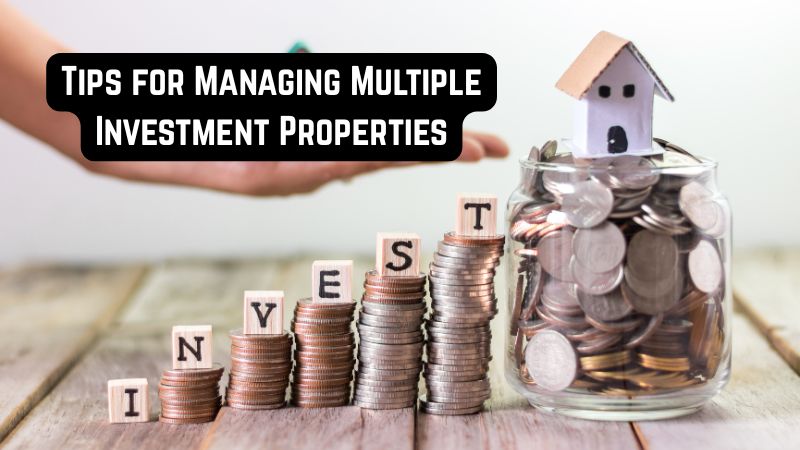Managing one investment property can be a handful. Add a few more, and things can quickly spiral out of control if you’re not organized. From handling tenants and repairs to keeping up with finances and laws, it’s essential to stay on top of everything. Whether you’re a new investor or growing your property portfolio, these tips will help you manage your rental empire smoothly and efficiently.
Stay Organized with a Property Management System
The more properties you own, the harder it gets to track them manually. Use a reliable property management system or software to centralize information. These tools can help you manage rent payments, maintenance requests, lease documents, and tenant communication all in one place. Digital systems can also send reminders for rent due dates, inspection schedules, and legal deadlines. It keeps everything easy to access and reduces the chance of missing important details. Whether it’s a cloud-based app or software on your computer, investing in this system saves time and energy.
Hire a Good Property Manager
If you’re stretched thin, it might be time to hire a professional. A skilled property manager can take care of the day-to-day work, like collecting rent, handling repairs, and screening tenants. They can also provide updates about your property’s condition and any issues that arise. Yes, there’s a cost involved, usually around 8–12% of monthly rent, but it frees you up to focus on expanding your portfolio or just enjoying life. For investors with multiple properties, especially those in different cities or states, a property manager is often a game-changer.
Standardize Your Processes
To reduce confusion, try to keep your procedures the same across all properties. Use the same lease agreement format, rent collection methods, and maintenance request forms. This consistency helps avoid mistakes and keeps you in control. Tenants also appreciate a clear and predictable system. It’s easier to manage properties when everything follows the same workflow. If something needs fixing, your go-to process should already be in place. It creates efficiency and reduces the learning curve every time you add a new property.
Build a Reliable Team
You can’t do it all alone, and that’s okay. A good team of professionals can make all the difference. You’ll need a trustworthy handyman, plumber, electrician, and maybe even a cleaner. Have a reliable accountant or tax advisor, especially someone familiar with real estate. A legal expert for lease disputes or eviction issues is also a smart addition. With multiple properties, emergencies and repairs happen more often. Having dependable people ready to help keeps your properties in great shape and tenants happy.
Keep Finances in Check
Finances can get complicated when dealing with several rental properties. Keep separate bank accounts for each property or use software to track income and expenses for each one individually. Always budget for repairs, vacancies, and emergencies. Maintain detailed records for tax purposes and work closely with a financial advisor. Also, watch your cash flow. Just because you’re earning rental income doesn’t mean you’re turning a profit. Track your numbers regularly to stay informed and make smart decisions.
Perform Regular Inspections
Don’t wait until something goes wrong. Schedule regular inspections for each property, at least twice a year. This helps you catch minor problems before they become big (and expensive). It also lets tenants know you’re serious about maintaining the home. During inspections, check plumbing, electrical systems, smoke detectors, and overall cleanliness. Document everything with photos. Preventive maintenance not only saves money but also extends the life of your property and its appliances. Inspections give peace of mind to you and your tenants.
Use Technology to Your Advantage
Technology can make your life a lot easier. Use smart locks, security cameras, and thermostats to monitor and manage properties remotely. Rent collection apps can automate payments and late fee notices. Virtual tours can help advertise vacant units faster. Even digital signature tools can speed up lease agreements. Embracing tech tools saves time, reduces errors, and keeps you competitive in a fast-paced market. Many property owners today use automation to free up hours of manual work every month.
Focus on Tenant Relationships
Happy tenants are more likely to renew their leases and take care of the property. Communicate clearly and respectfully. Respond to maintenance requests quickly. Make it easy for them to contact you. Good tenants reduce your stress and increase your profits. When managing multiple units, building strong tenant relationships can also reduce turnover and vacancies. Even a quick check-in now and then goes a long way. Treat your tenants with respect, and they’ll likely return the favor.
Create an Emergency Plan
When managing several properties, something is always bound to go wrong eventually. That’s why having a solid emergency plan is crucial. Know how to handle floods, fires, break-ins, or electrical issues. Make sure tenants know who to contact in an emergency. Have insurance for each property, and keep policies up to date. Emergencies are less stressful when you’re prepared. Consider creating a checklist for each property that outlines shutoff valves, key contacts, and safety procedures.
Know the Laws and Regulations
Each property might be in a different city or state, and the laws can vary widely. From landlord-tenant rights to eviction rules and safety codes, staying compliant is essential. Ignorance of the law isn’t an excuse, and fines can be costly. Stay updated on changes in housing laws and building codes. Attend local landlord meetings or forums and consult with a property law expert if needed. Being legally prepared keeps your business running smoothly and avoids lawsuits or tenant disputes.
Keep Scaling Smartly
It’s tempting to keep buying more properties when the cash flow is good. But scaling your investment portfolio should be a planned move. Don’t overextend your budget or time. Only add new properties when your systems and finances are strong enough to support growth. Rushing into expansion without proper support can cause burnout or financial trouble. Take it one step at a time. A few well-managed properties will always outperform a chaotic portfolio of many.
Conclusion
Managing multiple investment properties doesn’t have to be overwhelming. With the right systems, tools, and team, you can stay organized and in control. Whether you’re handling things yourself or with the help of a property manager, staying on top of finances, maintenance, and tenant relations is key. Smart planning, steady communication, and reliable processes can turn your property investments into a smooth-running business. Keep improving your system as you grow, and you’ll be on your way to becoming a successful real estate investor.


